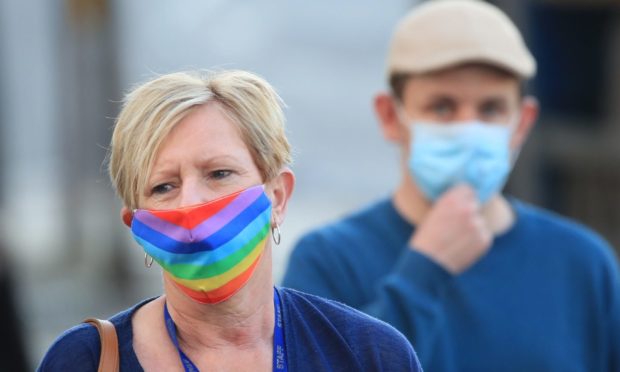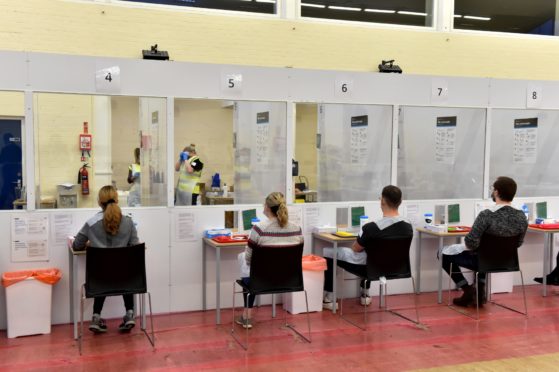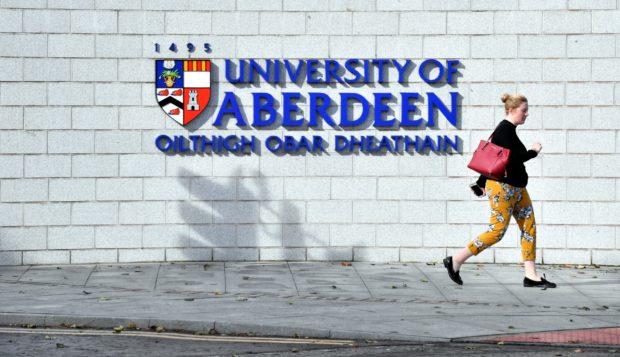Scientists at Aberdeen University are using “game-changing” technology to develop new face masks that are more effective in stopping the spread of Covid-19.
A multidisciplinary team of researchers from the School of Engineering and Institute of Medical Sciences have come together to develop the new masks.
The new technology they are using is called microfluidics.
Microfluidics is a technology that can be applied to prepare nanomaterials for use in medical textiles such as face masks.
“The aim of this project is to prepare new materials to increase the efficiency of face masks turning them into active barriers for Covid-19.
Dr Martinez-Felipe
Covid-19 can be transmitted through airborne particles we breathe out. The aim is to use microfluidics to create a new nanomaterial that will provide a stronger barrier against the transmission of these particles.
This technology can also be used to study the microscopic transport of particles carrying Covid-19.
The project is being funded by a £11,602 NHS Grampian Endowment Research Grant.
The team will test the effectiveness of microfibres containing silver nanomaterials in neutralising the virus. These are known to have antimicrobial and antiviral properties.
To do this, the scientists will develop a new experimental device to test and prepare new nanomaterials.
The research is being led by Dr Alf Martinez-Felipe and Dr Wenbo Zhan from the School of Engineering, and Dr Claudiu Giuraniuc from the Institute of Medical Sciences.
Mr Martinez-Felipe said: “There are several challenges regarding the development of efficient masks, such as the ability to reuse them safely, or the deactivation of the virus in the masks to avoid further propagation by misuse.
“The aim of this project is to prepare new materials to increase the efficiency of face masks turning them into active barriers for Covid-19.
“To do that we will prepare new silver nanoparticles embedded in microfibres, which will retain the aerosols containing Covid-19, and we will also measure the therapeutic potential of the materials by using the antiviral potential of silver nanoparticles.
“The key to doing this is our development of a new, versatile microfluidic device to test the effectiveness of these materials, which we will optimise using experimental and computational models. Microfluidics is regarded as a game-changing technology in terms of research into new nanomaterials, and we are very excited about the potential of this project.”
Mr Giuraniuc added: “This is innovative cross-disciplinary research that combine the research strengths of the Institute of Medical Sciences and School of Engineering, that will explore the potential of microfluidics in achieving progress in a critical area of healthcare.
“We expect that our findings will open new avenues for research, and ultimately lead to the introduction of new and more effective materials for use in the mass production of commercial face masks.”
Specac Ltd is partnering with the team for the project. It will provide support by developing accessories that will help researchers to better understand the effectiveness of their new nanomaterials.


